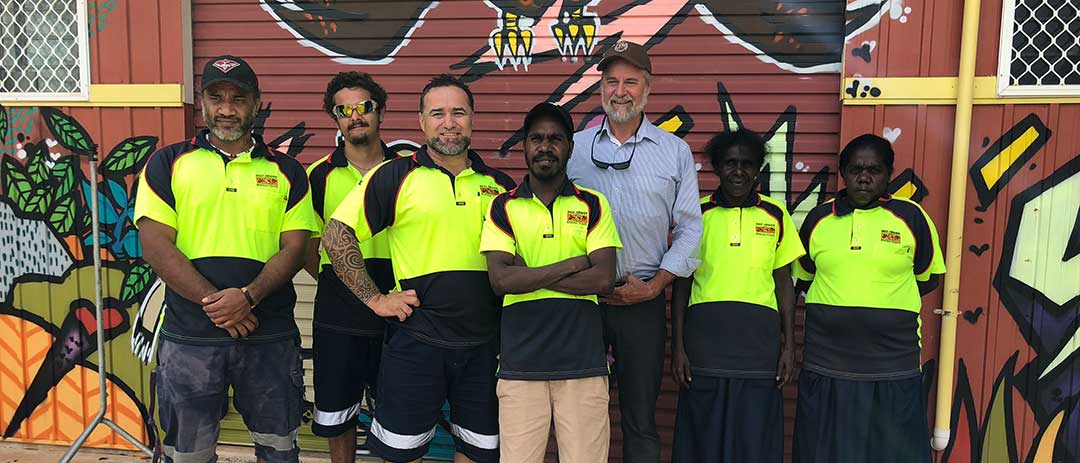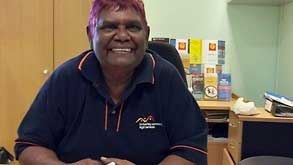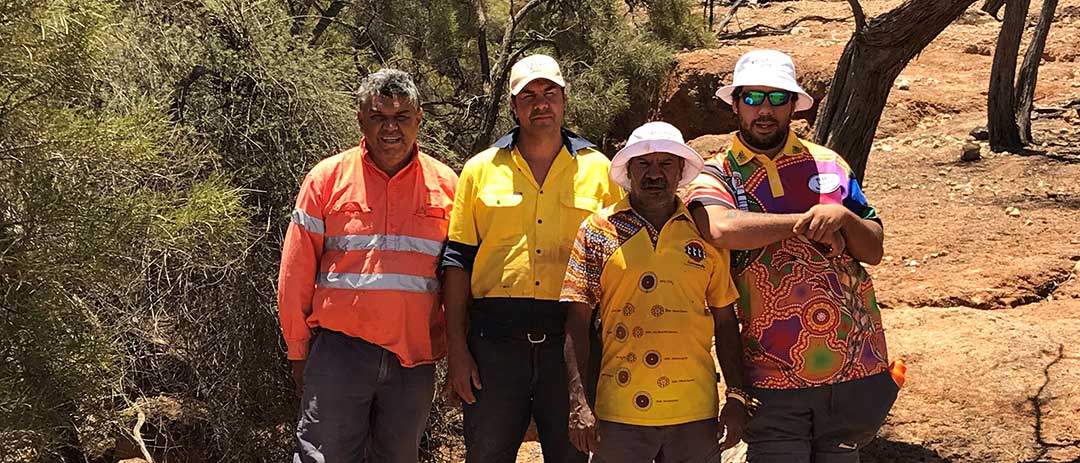'It is us as communities with our insight and foresight that are qualified to respond to our needs and unresolved historical trauma. It is us as a community that must lead the way in creating an environment primed for positive change.' Aboriginal and Torres Strait Islander Social Justice Commissioner, June Oscar.
Introduction
Aboriginal and Torres Strait Islander people, like all Australians, have the right to live in a safe and healthy home and community. However, Indigenous Australians are more likely to experience child abuse and neglect, family violence, and incarceration than non-Indigenous Australians.
This is why the Australian Government makes safer communities a key priority in Indigenous Affairs.
Making communities safer depends on our capacity to address entrenched disadvantage and the factors that drive violent and criminal behaviour, and reduce the over-representation of Indigenous Australians in the child protection and justice systems.
State and territory governments are responsible for public order and safety and the delivery of child protection services, police, courts and corrective services. The Australian Government also plays an important role in supporting vulnerable families through measures designed to assist families and communities, particularly those experiencing family violence. Government funding of Aboriginal and Torres Strait Islander legal services also supports access to justice for Indigenous Australians.
In addition, the Australian Government has a role to play in addressing the underlying social and economic factors that see Indigenous Australians more likely than non-Indigenous Australians to be incarcerated and experience child abuse and neglect, family violence and other forms of violent crime. This includes investing in crime prevention and early intervention activities that supplement state and territory efforts, and ensures Indigenous Australians have access to justice.
Addressing these complex factors requires coordinated effort from all levels of government, across sectors and in partnership with Aboriginal and Torres Strait Islander Australians.

Minister for Indigenous Affairs Nigel Scullion the Community Night Patrol team in Gunbalayna.
Translating Policy into Action
The Australian Government is working with state and territory governments to improve community safety outcomes, with a priority focus on Aboriginal and Torres Strait Islander Australians.
The Australian Government contribution includes support for:
- Enabling victims and reducing family violence. Investment in Family Violence Prevention Legal Services to provide culturally safe support and legal assistance to victims/survivors of family violence and sexual assault. In addition, integrated duty lawyer and family violence support services assist families with complex needs who may be involved in matters across the family law, child protection and family violence systems. The Government is funding specialist domestic violence services that provide legal assistance, integrated with other support services, for women experiencing family violence. These services are operating in 21 locations of high need across Australia, including in rural and remote communities with high Indigenous populations, such as Kununurra in Western Australia and Alice Springs and Tennant Creek in the Northern Territory.
- Providing intensive family-focused case management and therapeutic services for children. The Third Action Plan of the National Plan to Reduce Violence Against Women and their Children provides these services, along with behaviour change programs for those who use violence.
- Protecting children at risk of entering, or already in child protection services. The Government is assisting children at risk of entering, or already in child protection services to thrive into adulthood. Services funded include services including culturally appropriate family dispute resolution; intensive family support services; place-based responses to child sexual abuse in remote communities; and intensive support for young people in out-of-home care.
- Crime prevention, diversion and rehabilitation. The Government funds community night patrols and services to support adult prisoners and young people in youth detention facilities reintegrate into the community, return to their families and break the cycle of offending.
- Custody notification services. Some states and territories have Custody Notification Services (CNS), which ensure legally mandated provision of fundamental legal advice and a welfare check for all Aboriginal and Torres Strait Islander people taken into police custody.
- Alcohol and other drugs treatment services. The Government has introduced policies to support a reduction in the demand, supply and harm from alcohol and other drugs use. Approximately $70 million is provided annually for Indigenous alcohol and other drug treatment services. In addition, the Primary Health Networks are provided $241.5 million to commission drug and alcohol treatment services, including $78.6 million for culturally appropriate services for Aboriginal and Torres Strait Islander people. There is a commitment of $11.7 million in 2018–19 to support low aromatic fuel being made available from more than 175 outlets across Queensland, the Northern Territory, Western Australia and South Australia to help reduce petrol sniffing occurring in regional and remote communities, and a further $3 million to provide other volatile substance misuse harm reduction activities.
The Australian Government is also working collaboratively with the Northern Territory Government and community sector to support reforms arising from the recommendations of the Royal Commission into the Protection and Detention of Children in the Northern Territory.
What are the areas for further development?
The Australian Government will continue to work with state and territory governments, experts and other stakeholders and Aboriginal and Torres Strait Islander Australians and their representatives to identify priority actions to:
- Support the efforts of states and territories to reduce Indigenous incarceration rates and improve Indigenous justice outcomes.
- Continue to support the safety of children at-risk of experiencing child abuse and neglect, including targeted responses to support families with high needs.
- Continue to support victims of family violence, and prevent perpetrators from re-offending.

Ruth Abdullah was awarded the Medal of the Order of Australia for service to the Indigenous community of Western Australia. Ruth is the Aboriginal Liaison Co-Ordinator at Kimberley Community Legal Services, one of the Domestic Violence Units funded by the Australian Government. Since 2000, Ruth has been helping Aboriginal people to understand their legal rights and acting as a role model for younger generations.
Local solutions
In the Pilbara region, the Blurred Borders project uses art and storytelling to assist frontline legal assistance staff to communicate so that clients can better understand and make informed legal choices and to actively participate in legal processes.
In Tennant Creek, the Australian and Northern Territory governments have worked with the local Aboriginal community to form a Cultural Authority Group, which advises governments on service delivery and investment priorities to address embedded social issues and support the region’s future growth and prosperity. The work of the Cultural Authority Group is further supported by a $30 million investment from the Commonwealth to support the economic and social development of the region.
In communities across Western Australia, Aboriginal and Torres Strait Islander Australians taken into police custody will soon have access to culturally appropriate, holistic wellbeing support through a mandated CNS. The important safeguard provided by this critical welfare check and referral process is the result of a partnership between the Australian Government, the Western Australian Government and the Aboriginal Legal Service of Western Australia. This is in addition to the CNS in New South Wales delivered by the Aboriginal Legal Service NSW/ACT and the Northern Territory CNS which will be delivered by North Australian Aboriginal Justice Agency from 2019. The Australian Government has offered introductory funding for a Custody Notification Service to all jurisdictions.

In Cunnamulla, Indigenous Elders and community representatives, the Cunnamulla Aboriginal Corporation for Health, Paroo Shire Council and other partners worked together to co‑design the ‘Cunnamulla – Strong Families, Strong Community’ project. The project focusses on prevention first, community education, and creating respectful relationships, with decisions made by a management committee comprising key local leaders. The program was implemented with a whole of community approach working in partnership and other service providers. There has been a 60% reduction in domestic violence occurrences from December 2016 to October 2018.
